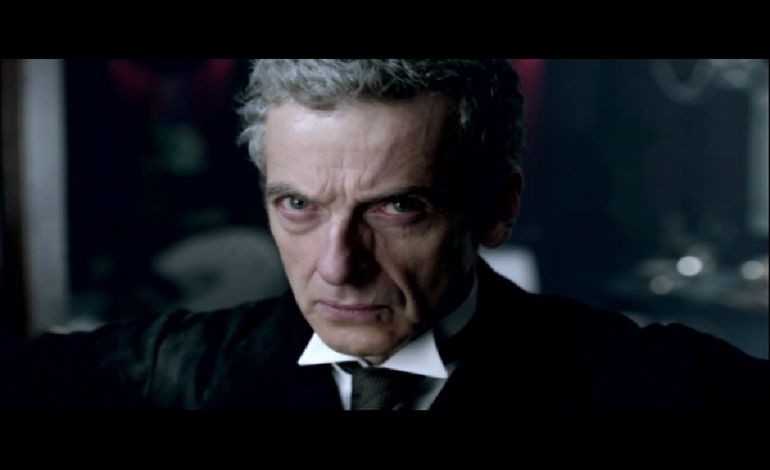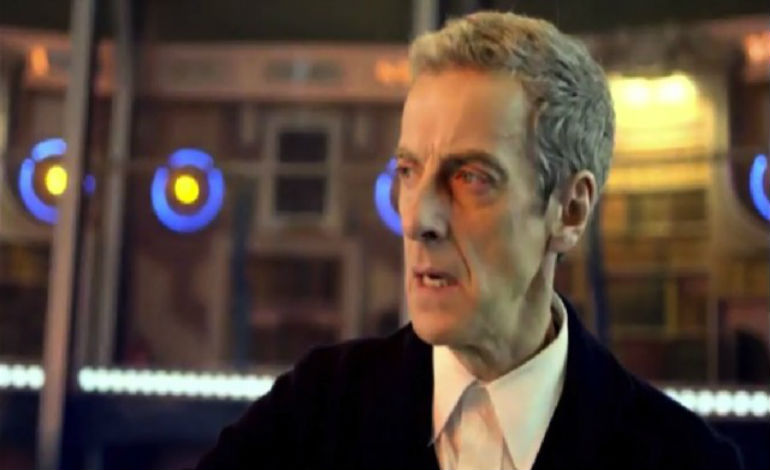Doctor Who: A Deep Breath Against Uncertainty
Do you happen to know how to fly this thing?
This was the question posed to us at the end of the last season of Doctor Who. It might as well be the quintessential Whovian question directed towards both The Doctor and the writers of the show. The program itself always explores what it is, always changing, while at the same time attempting to keep the core of itself the same. After watching “Deep Breath,” the first episode of Season Eight, this weekend I realize there are a lot of ways you can look at it.
A little while ago, I was examining the different eras of Doctor Who and comparing them to the Ages in comics. I had a theory that, after “Time of The Doctor,” we would be moving past the dark angst-ridden era of Doctor Who revisionism begun by Russell T. Davies and into a reconstructionist phase: a place where everything went back to basics with a modern sense of storytelling. I actually thought the presence of Tom Baker in “The Day of The Doctor” hinted on a season that was a return to wonder and adventuring. I thought, with the rescue and quest to find Gallifrey, that the darkness would finally be banished or at least heavily minimized.
Of course, I was very wrong.
You see, I forgot something when making these comparisons. I forgot about the so-called “Golden Age” of Doctor Who. Just like the Golden Age of comics, those early adventures could be dangerous, sinister, and downright creepy. And The Doctor himself was not always a trustworthy Time Lord and you always had to kind of watch your back around him. If the Eleventh Doctor’s run felt like witnessing a fairytale, then it really seems like the Twelfth Doctor is a throwback to the terror of the original: like the ancient cautionary folktales of old attempting eat their sanitized offspring … only far grittier and even more discomfiting.
“Deep Breath” is almost a warning to the audience. It starts off with a dinosaur running amok in Victorian England and spitting out the TARDIS that Peter Capaldi’s Doctor hasn’t yet learned to fly. You have the Paternoster Gang: complete with the Silurian detective Madame Vastra, her wife and maid Jenny, and good Sontaran Strax. It seems to begin like any strange wild, wacky Doctor Who adventure.
It’s not.
It’s no surprise that The Doctor is confused and disoriented in his new Regeneration. We’ve seen him deal with similar situations in the past. But this time, when you consider how he was an old man in “Day of The Doctor” and all the other events he survived, watching him attempt to remember things and fail is actually quite unsettling. The part where the Gang brings him to a bedroom at Vastra’s home really stands out at me as he was actually terrified of being in a small enclosed space that was small on the inside and separated by different rooms. He just couldn’t understand it and, if your last memories are of being in something like the TARDIS, this disorientation — along with his Time Lord conception of space and time around him — makes a fair amount of sense.
I think it was actually hard for me to watch Clara deal with this. She is watching her best friend, who she doesn’t even recognize any more, suffer from what looks like dementia. This new man is not The Doctor that she loves and it takes her a while to admit that to herself.
It takes Madame Vastra, with Jenny to moderate her patience, to make Clara face this. The Silurian makes a very fascinating point about how The Doctor’s previous Regeneration — if not the other two before it — were attempts to fit in among humankind: almost like a veil. For me as a fan, I was both sympathetic to Clara — as she was very much in love with the Eleventh Doctor — but just as annoyed with her too as Vastra was: though for a different reason. In the previous story arc it was very clear that Clara jumped into The Doctor’s timestream and created different versions of herself throughout his various timelines. While I’m not sure how extensive her memories are of her other scattered selves, the fact is she has seen him in all of his incarnations. Even in “Day of The Doctor” she met the Tenth Doctor and The War Doctor. She knew he could change and that he had been different people. But suppose what we are seeing here is the loss of her Doctor and her process of having to accept this.
Meanwhile, The Doctor himself is trying to get used to the person he has become: or rather becoming the person that he now is. Even though some of his traits are familiar, such as his need to talk to the point of babbling and getting lost in his own thoughts, his anger is much more apparent now. After running away from Vastra’s house, he calls everyone around him “pudding heads” and promptly dives into a river. At one point, when he demanded a man’s coat I was genuinely concerned that this person — whom many of us saw as a hero — was going to attack and rob some poor, scared drunk old man.
And then there was the part in the show when he seems to actually abandon Clara to their enemies.
I have to admit: even though I’d had some impatience with Clara before, and on some level I knew he wouldn’t just leave her I … actually wondered. Clara’s shock and grief were very clear and a part of me hoped that when she got out of her predicament, she’d get the chance to outright slap him.
That all said, I really loved the monsters in this episode. They were essentially Clockwork droids that had crash landed on Earth ages ago and used human flesh and organs as spare parts to keep them going. They mostly reacted to humans, but there is something very grisly about watching them move around jerkily wearing motley suits in various stages of decorum and decay. Basically, they are from the sister ship to the SS Madame de Pompadour and wear human skin. It’s even at a point where they have absorbed so much human matter that they believe they are attempting to rebuild their ship and find a “promised land.”
The fact that a “repaired escape-pod” of theirs utilizes a hot-air balloon made of human skin really tells you a lot about the spirit of this episode right there.
What I find fascinating is the clockwork element in this episode and potentially others. The introduction sequence is composed of a collection of synchronized golden-worked gears. At one point I was under the impression that Steven Moffat was attempting to sabotage the Miltonian clockwork perfect universe of Russell T. Davies by creating his “tears in space and time,” but it looks like I was wrong again. In fact, there is a very steampunk look to this episode: even and especially when you look at The Doctor’s new suit with its white shirt, black coat and red in-lining the very end.
I think that, for me, this episode actually — for the first time — made me afraid of Doctor Who. The monsters were genuinely disturbing. The Doctor himself seemed to display more anger, ruthlessness, and a lack of dependability hearkening back to the First. And there was one time I wondered if the Gang was going to survive.
I wondered if The Doctor was even going to come back for Clara: and that sense of abandonment of her and our expectations was a horror far more terrible than any human-harvesting robots.
This isn’t even mentioning the ad in the paper that brought Clara and The Doctor back together, or why The Doctor’s new face seems so familiar to him. There are some hints that go back to previous episodes on those little details alone. And then there is the presence of a mysterious woman named Missy at the very end of the episode.
It’s funny. When Doctor Who began in 1963, it was meant to be a children’s show. At the same time, however, the monsters were always meant to be terrifying and the adventures truly harrowing even as it was clear that The Doctor himself wasn’t necessarily meant to be a hero. In fact, his new musical theme such as it is — sounding like a wind raking the night with a hard cold edge — is something I still need to get used to.
So where might this all be going? Does Steven Moffat know how to fly this thing? In the past, the shaky episodes and moments of questionable continuity have made me wonder. But if “Deep Breath” is any indication of what we might expect in the future, we might be looking a season that isn’t going to pull any punches.
Because there is a difference between personal angst and dark speculative fiction, and while we might have moved past the former there is still a whole wide multiverse of uncanny adventure for which to look forward.











